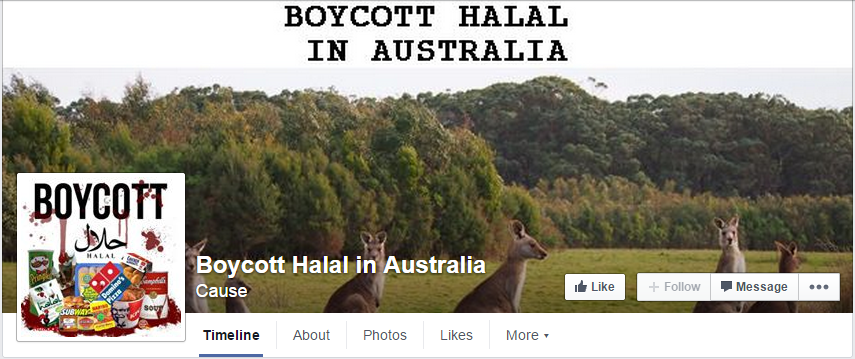
A South Australian company has bowed to a social media campaign and scrapped its halal certification, costing it a contract with the Middle East’s biggest airline.
Fleurieu Milk Company, and other South Australian food and drink manufacturers such as Vili’s and Coopers, have been targeted by Facebook pages like Halal Choices and Boycott Halal in Australia for their decision to pursue the certification. Halal is a term used by Muslims meaning the food has been prepared or slaughtered according to Islamic law.
Fleurieu Milk Company sales and marketing manager Nick Hutchinson said the decision to drop the halal certification would mean the Myponga-based dairy would lose a yoghurt supply deal with Emirates worth around $50,000 a year.
Mr Hutchinson said the decision was regrettable, but that the company had decided the possible damage to its brand outweighed the benefits of being halal certified.
“We’ve copped a pasting online,” he said. “We saw the barrage of comments on these sites and the calls to boycott our products and decided it wasn’t worth it. I suppose we’ve given in to a vocal minority.
“It is important for people to realise that being a business owner in Australia can be challenging. In order to remain financially viable companies are forced to look to expand into new markets. Fleurieu Milk had the opportunity to supply Emirates airlines given they became halal approved. We decided the $1000 annual fee was worth it and proceeded.”
The anti-halal sites make a number of claims about the certification, including that it is essentially a religious tax that forces up the price of food, that it is cruel to slaughtered animals and that money could be used to fund Islamist terrorists overseas. The sites encourage consumers to boycott any products displaying the halal accreditation symbol.
Mr Hutchinson said he believed the anti-halal sites were wrong in targeting Australian food producers.
“Other company’s make tens of millions of dollars through being halal certified and cannot walk away like we have,” Mr Hutchinson said. “These business owners are true-blue Aussies bringing a lot of international dollars back into the local economy and would prefer not to pay the certification fee as well.
“The question must be asked: what is worse – paying the $1000 fee or making hundreds of employees around SA redundant? People will argue for both sides, but what we want people to ask themselves is ‘are you directing your anger in the right direction?’ Do these business owners, in our case the local farmers, deserve this or should you be petitioning above them to stop the fee having to be paid?”
Iconic pie and pastry manufacturer Vili’s confirmed the company had also been the target of the anti-halal group, but said it had no plans to bend to pressure from “hate mail and ignorant comments”.
A spokesman for Vili’s said the company had been halal certified since 1997, and that it had helped the company grow both in Australia and overseas. “From a purely economic viewpoint, halal certification brings a lot of money into Australia,” the spokesman said. “Vili’s also tries to be an inclusive company. We have no plans to change anything.”
The spokesman said while he would never tell the Fleurieu Milk Company how to run its business, he hoped that the company “isn’t being influenced unnecessarily”.
“When you look at these sites you get the impression that a lot of the comments are written in the same voice and probably come from the same source,” he said. “A lot of it is very similar, suggesting that these sites might not be as strong as they say they are.”
